|
#1
January 14th, 2016, 05:03 PM
| |||
| |||
| Combined Defence Services Exam Question Paper
Can you provide me the previous year Sociology question paper of CDS or Combined Defence Services Exam conducted by UPSC or Union Public Service Commission? The previous year Sociology question paper of CDS or Combined Defence Services Exam conducted by UPSC or Union Public Service Commission is as follows: 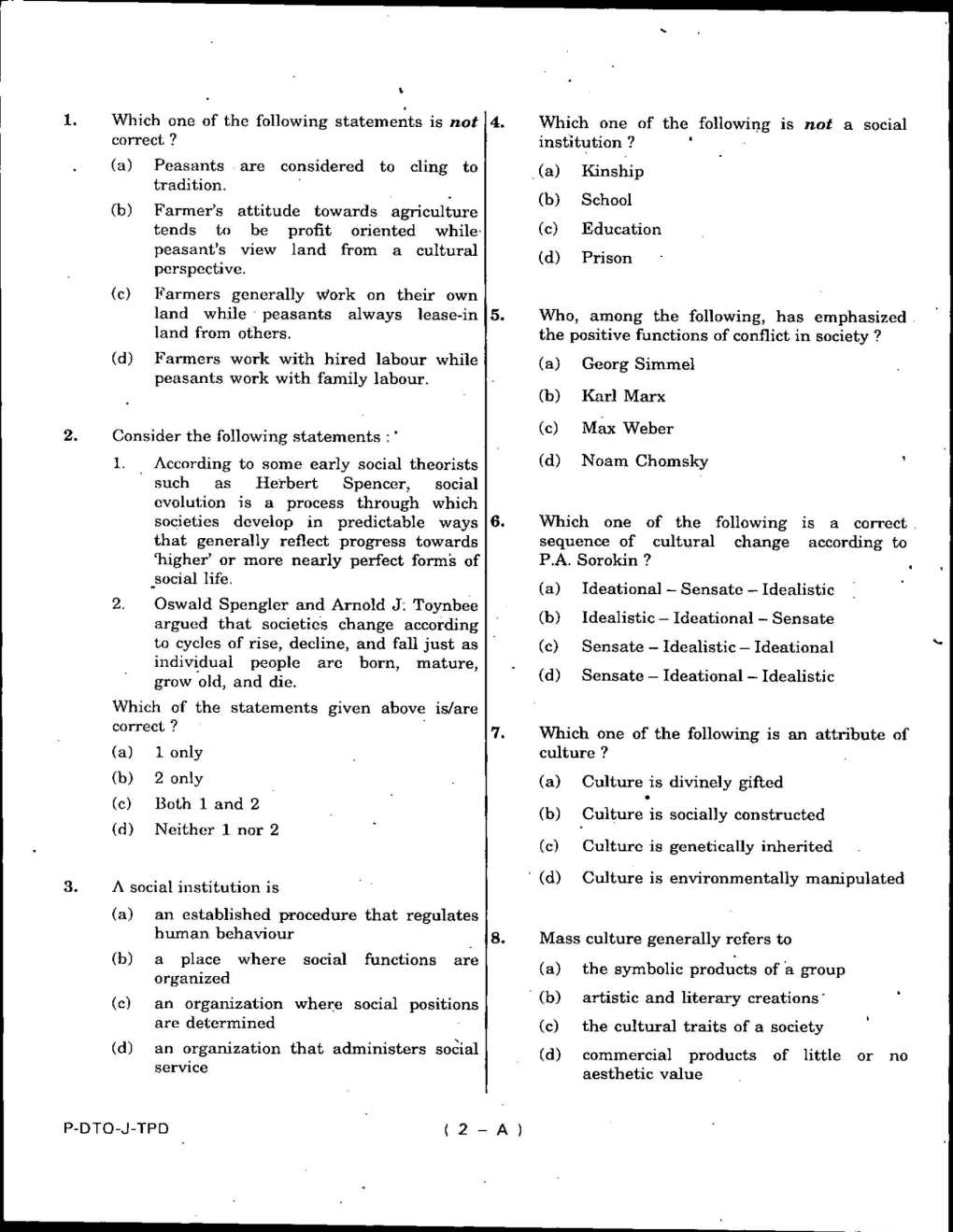 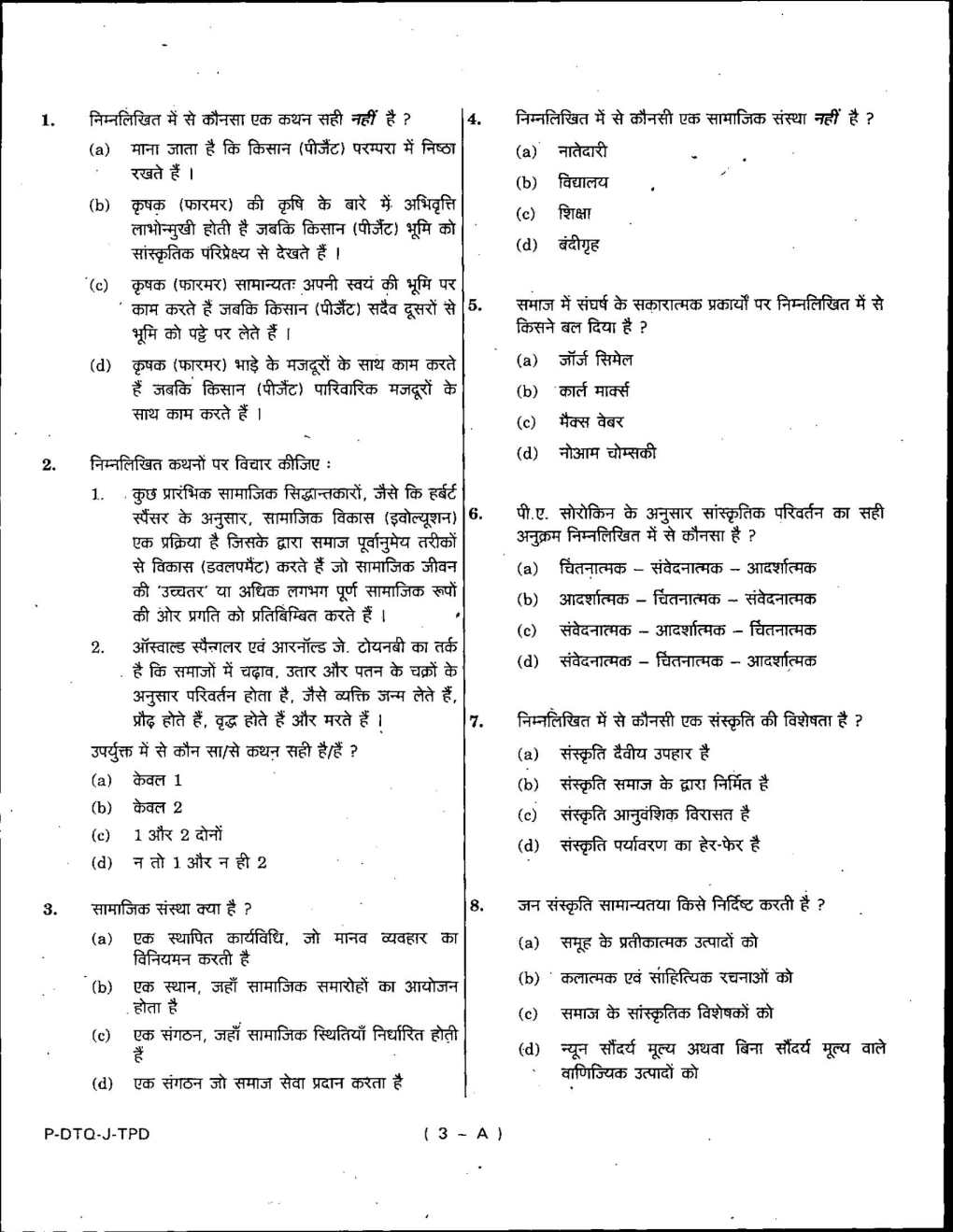 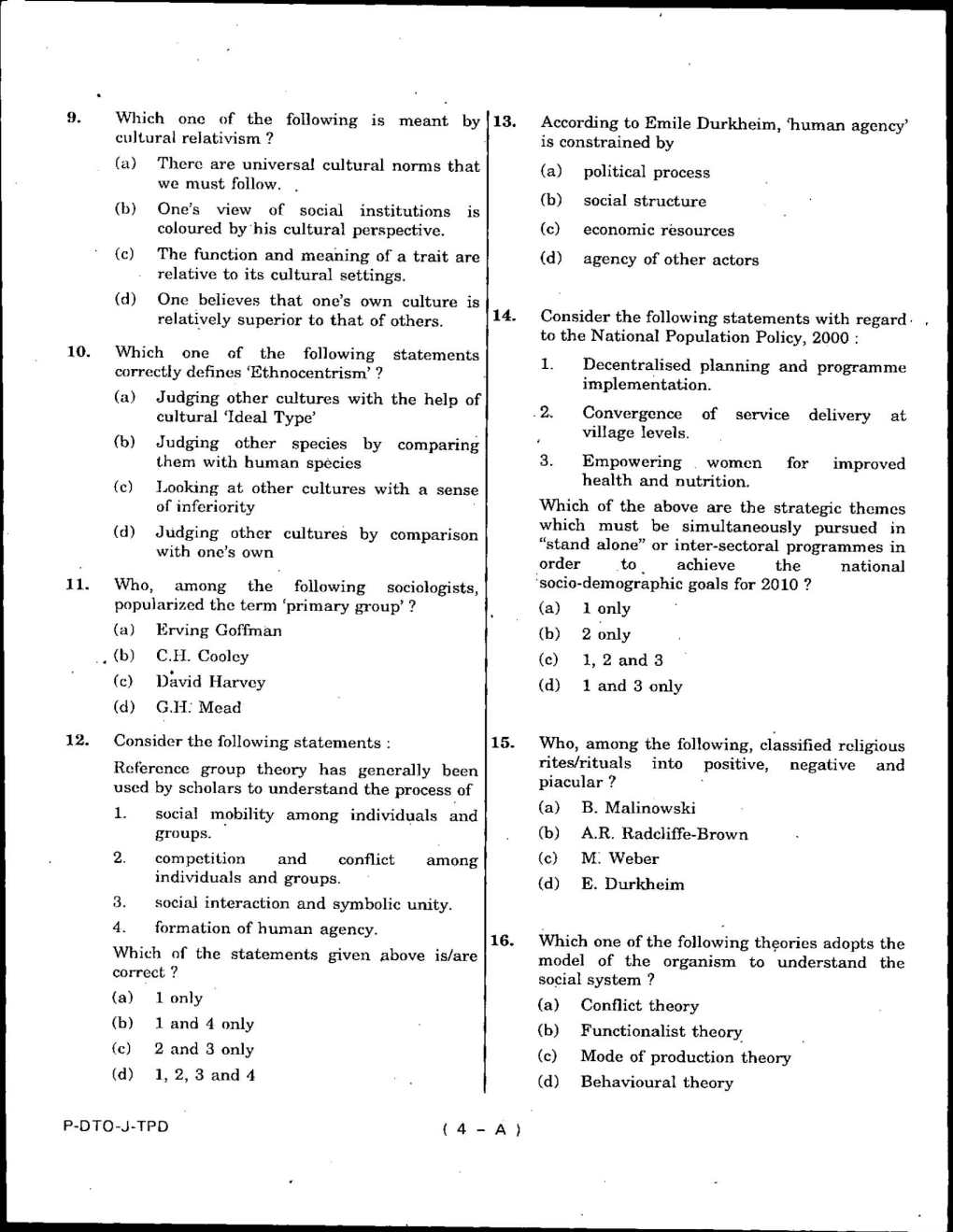 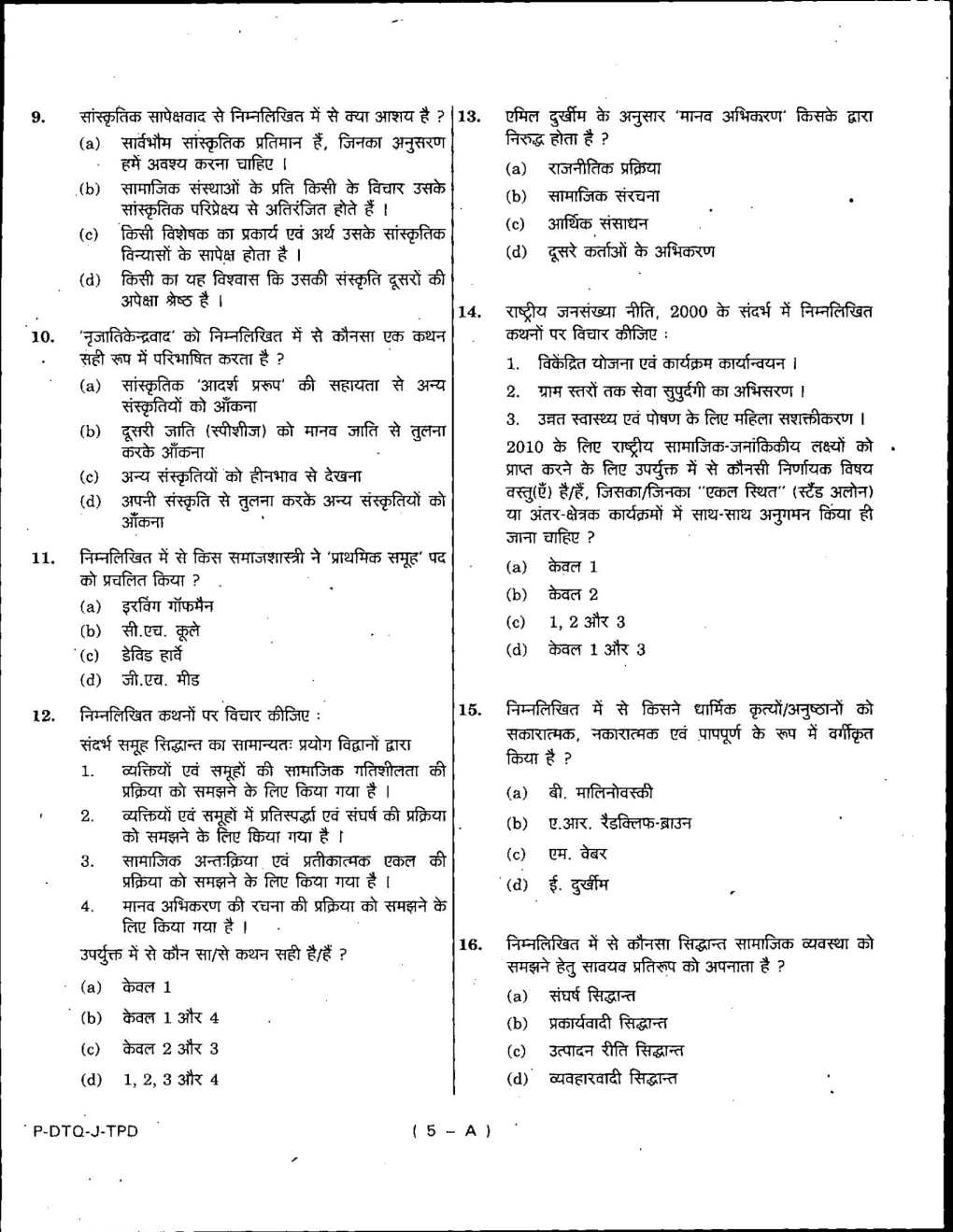 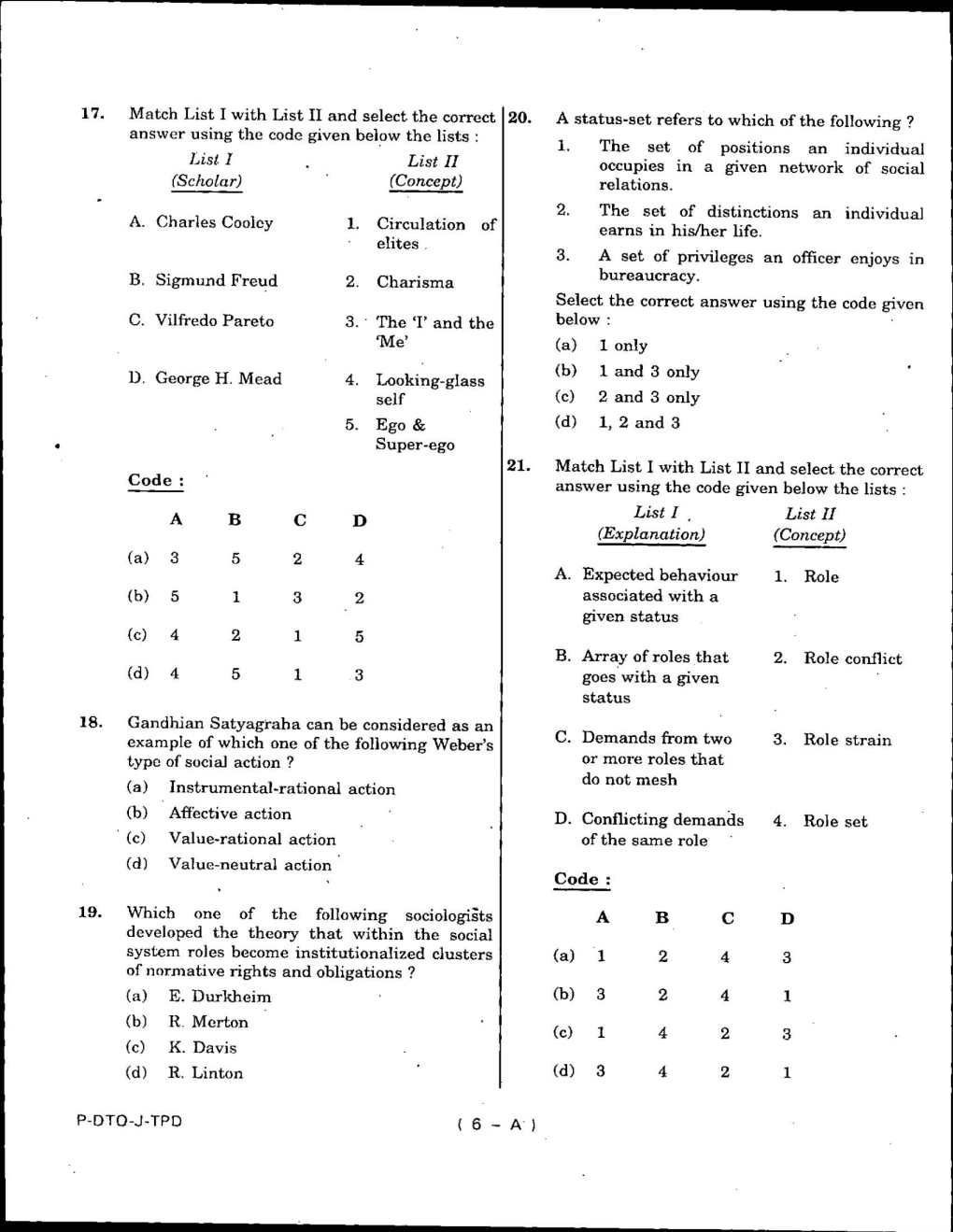 UPSC CSE Mains Sociology Syllabus Paper - I: Sociology Syllabus FUNDAMENTALS OF SOCIOLOGY 1. Sociology - The Discipline: (a) Modernity and social changes in Europe and emergence of sociology. (b) Scope of the subject and comparison with other social sciences. (c) Sociology and common sense. 2. Sociology as Science: (a) Science, scientific method and critique. (b) Major theoretical strands of research methodology. (c) Positivism and its critique. (d) Fact value and objectivity. (e) Non- positivist methodologies. 3. Research Methods and Analysis: (a) Qualitative and quantitative methods. (b) Techniques of data collection. (c) Variables, sampling, hypothesis, reliability and validity. 4. Sociological Thinkers: (a) Karl Marx- Historical materialism, mode of production, alienation, class struggle. (b) Emile Durkheim- Division of labour, social fact, suicide, religion and society. (c) Max Weber- Social action, ideal types, authority, bureaucracy, protestant ethic and the spirit of capitalism. (d) Talcolt Parsons- Social system, pattern variables. (e) Robert K. Merton- Latent and manifest functions, conformity and deviance, reference groups. (f) Mead - Self and identity. 5. Stratification and Mobility: (a) Concepts- equality, inequality, hierarchy, exclusion, poverty and deprivation. (b) Theories of social stratification- Structural functionalist theory, Marxist theory, Weberian theory. (c) Dimensions – Social stratification of class, status groups, gender, ethnicity and race. (d) Social mobility- open and closed systems, types of mobility, sources and causes of mobility. 6. Works and Economic Life: (a) Social organization of work in different types of society- slave society, feudal society, industrial /capitalist society. (b) Formal and informal organization of work. (c) Labour and society. 7. Politics and Society: (a) Sociological theories of power. (b) Power elite, bureaucracy, pressure groups, and political parties. (c) Nation, state, citizenship, democracy, civil society, ideology. (d) Protest, agitation, social movements, collective action, revolution. 8. Religion and Society: (a) Sociological theories of religion. (b) Types of religious practices: animism, monism, pluralism, sects, cults. (c) Religion in modern society: religion and science, secularization, religious revivalism, fundamentalism. 9. Systems of Kinship: (a) Family, household, marriage. (b) Types and forms of family. (c) Lineage and descent. (d) Patriarchy and sexual division of labour. (e) Contemporary trends. 10. Social Change in Modern Society: (a) Sociological theories of social change. (b) Development and dependency. (c) Agents of social change. (d) Education and social change. (e) Science, technology and social change. Paper - II: Sociology Syllabus INDIAN SOCIETY: STRUCTURE AND CHANGE A. Introducing Indian Society: (i) Perspectives on the study of Indian society: (a) Indology (GS. Ghurye). (b) Structural functionalism (M N Srinivas). (c) Marxist sociology (A R Desai). (ii) Impact of colonial rule on Indian society: (a) Social background of Indian nationalism. (b) Modernization of Indian tradition. (c) Protests and movements during the colonial period. (d) Social reforms. B. Social Structure: (i) Rural and Agrarian Social Structure: (a) The idea of Indian village and village studies. (b) Agrarian social structure - evolution of land tenure system, land reforms. (ii) Caste System: (a) Perspectives on the study of caste systems: GS Ghurye, M N Srinivas, Louis Dumont, Andre Beteille. (b) Features of caste system. (c) Untouchability - forms and perspectives. (iii) Tribal communities in India: (a) Definitional problems. (b) Geographical spread. (c) Colonial policies and tribes. (d) Issues of integration and autonomy. (iv) Social Classes in India: (a) Agrarian class structure. (b) Industrial class structure. (c) Middle classes in India. (v) Systems of Kinship in India: (a) Lineage and descent in India. (b) Types of kinship systems. (c) Family and marriage in India. (d) Household dimensions of the family. (e) Patriarchy, entitlements and sexual division of labour. (vi) Religion and Society: (a) Religious communities in India. (b) Problems of religious minorities. C. Social Changes in India: (i) Visions of Social Change in India: (a) Idea of development planning and mixed economy. (b) Constitution, law and social change. (c) Education and social change. (ii) Rural and Agrarian transformation in India: (a) Programmes of rural development, Community Development Programme, cooperatives, poverty alleviation schemes. (b) Green revolution and social change. (c) Changing modes of production in Indian agriculture . (d) Problems of rural labour, bondage, migration. (iii) Industrialization and Urbanisation in India: (a) Evolution of modern industry in India. (b) Growth of urban settlements in India. (c) Working class: structure, growth, class mobilization. (d) Informal sector, child labour. (e) Slums and deprivation in urban areas. (iv) Politics and Society: (a) Nation, democracy and citizenship. (b) Political parties, pressure groups , social and political elite. (c) Regionalism and decentralization of power. (d) Secularization (v) Social Movements in Modern India: (a) Peasants and farmers movements. (b) Women’s movement. (c) Backward classes & Dalit movement. (d) Environmental movements. (e) Ethnicity and Identity movements. (vi) Population Dynamics: (a) Population size, growth, composition and distribution. (b) Components of population growth: birth, death, migration. (c) Population policy and family planning. (d) Emerging issues: ageing, sex ratios, child and infant mortality, reproductive health. (vii) Challenges of Social Transformation: (a) Crisis of development: displacement, environmental problems and sustainability. (b) Poverty, deprivation and inequalities. (c) Violence against women. (d) Caste conflicts. (e) Ethnic conflicts, communalism, religious revivalism. (f) Illiteracy and disparities in education. Last edited by Neelurk; May 14th, 2020 at 03:24 PM. |